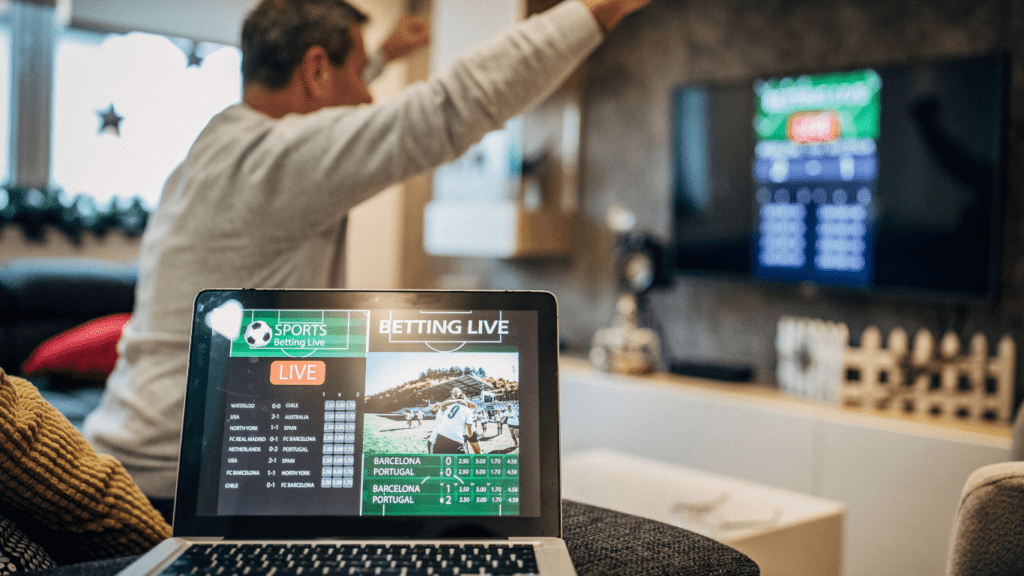Sports betting can be thrilling, but diving in without a plan often leads to frustration. When I first started, I quickly realized it wasn’t just about luck—it takes strategy, discipline, and a clear understanding of the game. For beginners, the world of sports betting can feel overwhelming, but with the right approach, you can set yourself up for success.
Understanding Sports Betting Basics
Mastering the fundamentals of sports betting builds a strong foundation for long-term success. I focus on clear definitions, odds interpretation, and bet types to simplify the process.
Key Terminology Every Beginner Should Know
Understanding essential terms saves time and prevents confusion. Here are some key terms:
- Bankroll: The total amount of money set aside for betting activities. For example, betting $10 out of a $500 bankroll.
- Favorite and Underdog: The favorite (expected to win) often has lower odds, while the underdog’s odds are higher. If Team A has -150 odds, it’s the favorite.
- Units: A unit is a standard measure of a bet, often 1% of your bankroll. Betting 2 units from a $1,000 bankroll means risking $20.
How Betting Odds Work
Odds reflect the likelihood of an event and potential payouts. I analyze three common formats:
- American Odds: Represented as + or -, where +200 means a $100 bet could yield $200, and -150 means betting $150 nets $100.
- Decimal Odds: Displayed as a number, such as 2.5, which multiplies your wager ($10 x 2.5 = $25 final payout).
- Fractional Odds: Shown as a ratio, like 3/2, meaning $2 wagered earns $3 profit.
Profitability depends on understanding the format used by the sportsbook.
Types of Sports Bets You Can Place
Diverse bet options cater to different strategies. Common bet types include:
- Moneyline Bets: Predict the outright winner. Betting $100 on a +250 underdog yields $250 profit.
- Point Spread Bets: Adjust team performance by adding or subtracting points. For instance, betting on -6.5 for Team A means they must win by 7+ points.
- Totals (Over/Under): Bet on the combined score of both teams being over or under a set number, like 45.5 points in a football game.
- Parlays: Combine multiple bets for higher payouts. For example, betting on three outcomes means all must win to collect.
- Prop Bets: Focus on specific events, like a player scoring first in a soccer match.
Each type has unique risks and rewards shaped by game circumstances.
Preparing to Bet Like a Pro
Betting like a pro requires careful planning and disciplined habits. Developing a structured approach ensures you maximize success and avoid unnecessary risks.
Setting a Budget and Sticking to It
Effective budgeting is central to professional-level betting. I always allocate a specific portion of my disposable income as my bankroll. For example, I might set aside $500 monthly to use only for betting purposes. This ensures that I avoid overextending my finances.
Tracking every wager is equally important. I keep a log of all my bets, including amounts, team selections, outcomes, and net profits or losses. By managing finances consistently, I maintain long-term control and prevent reckless decisions influenced by short-term wins or losses.
Researching Sports and Teams
In-depth research builds informed decisions. I analyze team statistics, recent player performances, injury reports, and head-to-head records. For instance, knowing if a star player is sidelined or if a team performs poorly under specific conditions gives me a competitive edge.
I also follow trends specific to each sport. In football, for example, evaluating defensive and offensive statistics often predicts scoring outcomes. By staying updated through reputable sources like ESPN or official league websites, I ensure my bets align with accurate data trends.
Importance of Managing Your Emotions
Controlling emotions maintains rational decision-making. After a losing streak, some people chase losses, leading to larger risks and worse outcomes. I avoid such emotional reactions by stepping away after losses to reassess strategies calmly.
I also limit betting during moments of excitement or frustration. Winning streaks can create overconfidence, encouraging larger bets. To counter this, I always stick to predetermined amounts, regardless of recent outcomes, ensuring discipline guides every decision.
Developing a Winning Strategy

A consistent and thoughtful approach separates professional bettors from casual players. Adopting critical practices like analyzing data, observing experts, and avoiding mistakes ensures long-term success.
Analyzing Statistics and Trends
Focusing on key metrics improves decision-making in sports betting. I examine team performance trends, player statistics, injury reports, and historical matchups to identify value opportunities. For example, teams with a strong home-win record against struggling away opponents may offer favorable odds. Using data-driven insights minimizes reliance on guesswork. Reliable sources like league websites and analytics tools strengthen analysis.
Learning from Professional Bettors
Watching seasoned bettors provides valuable insight into effective strategies. I study their bankroll management, betting patterns, and the types of wagers they prefer. For instance, many professionals prioritize high-value bets instead of spreading resources across multiple options. Reading forums, listening to podcasts, or joining expert tipster groups connects me with actionable advice.
Avoiding Common Beginner Mistakes
Recognizing pitfalls reduces unnecessary losses. I avoid chasing losses, where frustration leads to impulsive decisions. Betting without understanding odds or emotional wagering on favorite teams often undermines success. I stick to researched bets and predetermined limits to maintain rationality. Awareness of these mistakes builds discipline over time.
Choosing the Right Betting Platforms
Selecting the right betting platform can significantly influence your sports betting experience. I focus on sites or venues that offer security, competitive odds, and user-friendly features.
Features to Look for in a Sportsbook
Analyzing sportsbook features ensures a reliable platform. I prioritize these key aspects when evaluating options:
- Licensing and Security: Verified licenses from organizations like the UK Gambling Commission or Malta Gaming Authority guarantee legitimacy. Secured transactions and encrypted data are critical for protecting personal and financial information.
- Competitive Odds: Platforms with consistently strong odds provide better payouts. Compare odds across multiple sportsbooks.
- Variety of Sports and Bets: Sites offering extensive sports coverage, such as soccer, basketball, and niche sports, increase opportunities. Diverse bet types, including parlays and prop bets, enhance flexibility.
- Promotional Offers and Bonuses: Sign-up bonuses, free bets, and loyalty programs add value. Confirm favorable terms and conditions to capitalize on these benefits.
- Ease of Use and Mobile Compatibility: A user-friendly interface ensures smooth navigation, while mobile compatibility enables convenient betting on-the-go. Dedicated apps are an added benefit.
- Payment Methods and Speed: Multiple deposit and withdrawal options, including credit cards and e-wallets, are a must. Fast payouts reduce delays in accessing winnings.
- Customer Support: Responsive, 24/7 customer service resolves issues promptly. Test live chat or email responsiveness before committing.
Comparing Online vs. In-Person Betting
Understanding the differences between online and in-person betting shapes my decisions based on convenience and needs:
- Accessibility: Online betting offers 24/7 access via mobile devices or computers. Physical sportsbooks, tied to specific locations, require travel.
- Odds Comparison: Comparing odds is faster online. Physical sportsbooks often limit access to odds for other venues.
- Atmosphere: In-person betting provides an engaging, communal experience for events like major sports championships. Online platforms lack live atmospheres but compensate with multimedia live streams.
- Promotions: Online platforms offer frequent bonuses and promotions not typically seen in physical sportsbooks.
- Privacy: Online betting allows discreet wagering, while in-person requires public interaction.
- Transaction Systems: Online platforms often support broader payment options than physical counterparts. However, in-person wagers avoid potential tech issues like failed transactions.
Both options come with distinct benefits; I choose based on preference, location, and available time.
Staying Disciplined and Consistent
Maintaining discipline and consistency is essential for long-term success in sports betting. Developing structured habits and sticking to them keeps emotions from influencing decisions and ensures a professional approach.
Tracking Your Bets and Progress
Tracking every bet is crucial for identifying strengths and weaknesses over time. I maintain a detailed record of each wager, including the amount, type, odds, outcome, and profit or loss. By reviewing these records, I can recognize patterns, adjust strategies, and avoid repeating mistakes. For example, if most of my losses occur with parlays, I reduce or refine those bets. Consistent tracking also helps measure profitability and reinforces bankroll management.
Knowing When to Stop
Setting limits is a fundamental part of disciplined betting. I establish a loss threshold for each session to avoid chasing losses and going over budget. Even during winning streaks, I stop when I reach my predetermined profit goal to protect gains and avoid overconfidence. Knowing when to take a break helps me reset mentally, ensuring rational and informed decisions in future bets. Recognizing signs of emotional or impulsive betting is key to maintaining control.





